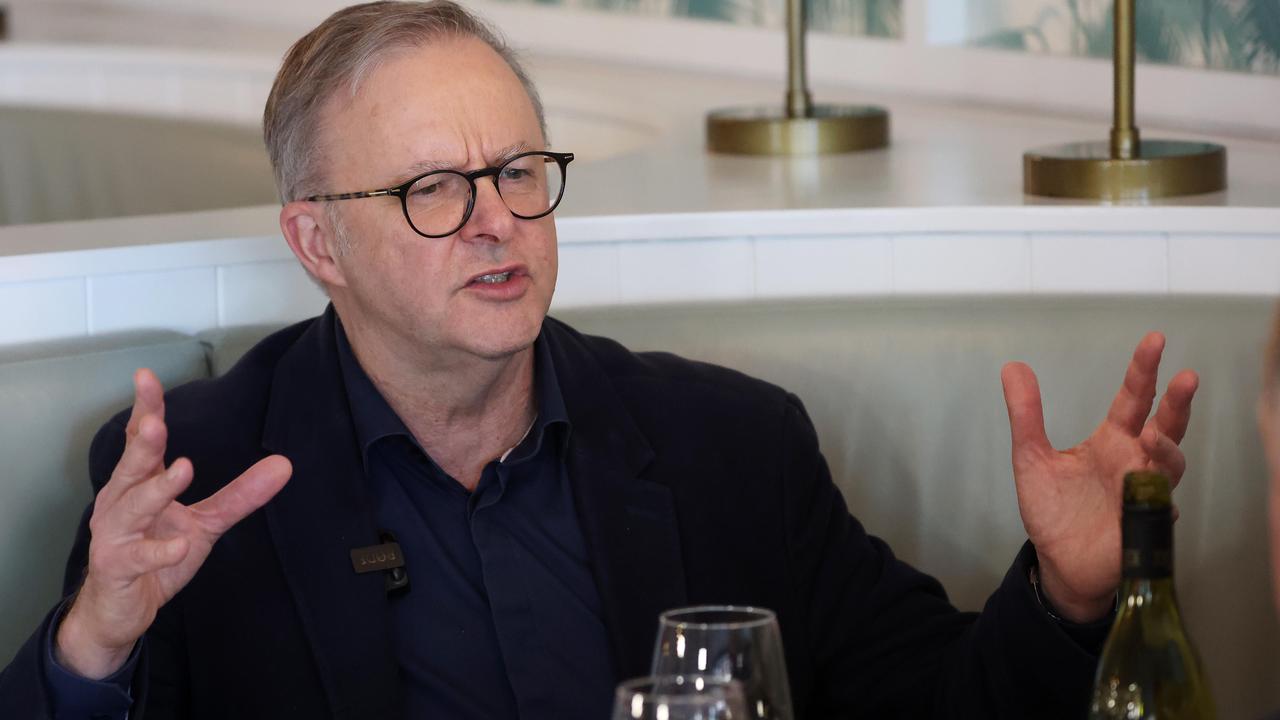
It can’t have been easy for Anthony Albanese sitting there on New Year’s Day 2019 listening to the wife telling him the marriage was over, especially given New Year’s Eve 2018 had held such promise.
“It was a shock to me,’’ he says, munching on his rib fillet at the Quarterdeck at The Ville Resort-Casino in Townsville.
“We had had a lovely night together the night before – New Year’s Eve – so there was no warning at all.’’
Carmel Tebbutt, his wife of 19 years and partner of 30, explained she wanted to take a new direction in life, so Albanese, utterly befuddled by this sudden change in circumstances, took one himself, even pondering walking away from politics.
“I felt like I needed to go away, think to myself about my life, like … was I certain I even wanted to run again?”
He went to London alone, went to pubs with people he had befriended over two decades of politics, went to see the musical Hamilton, booked a cheap flight to Lisbon, did a bit of sightseeing, pondered the nature of being, and finally decided it might be best to do a Paul McCartney and simply Let it Be.
“I was trying to understand what had happened with my relationship and it made me recognise that what I needed to do was not try to understand it but accept it.
“It happened, it was her decision, there was nothing I could do about it.’’
So he came home, threw himself into the 2019 election campaign with an unprecedented vigour given he was free of any domestic constraints, and, on the night of May 18, 2019, watched the Australian Labor Party under Bill Shorten go straight down the electoral gurgler.
“Bit like another marriage breakdown?” I suggest cheerfully, before realising that might sound a bit insensitive.
Albanese, however, always seems to have the hint of a grin playing around his mouth, whatever the topic, and is unfazed.
“It was a shock to everyone. It was a shock, but I decided straight away that I would run for leader,’’ he says.
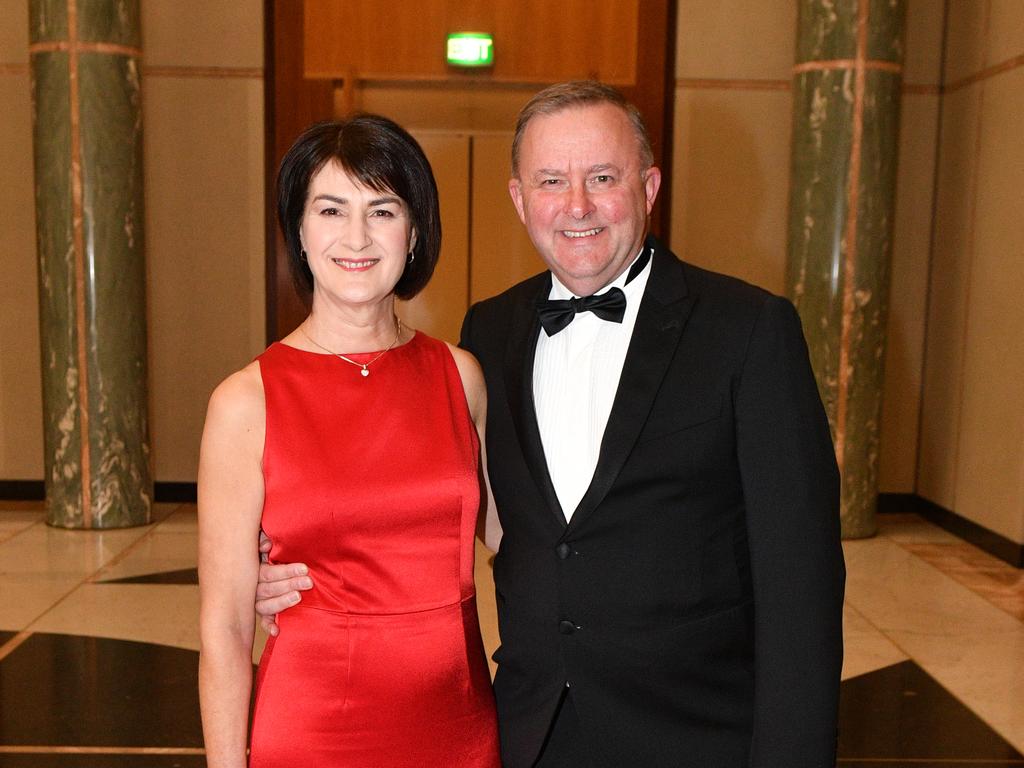
The only certainty he held in his mind at this stage was that, for him, romance was finished – there would never be another woman because, at that stage, “Carmel was the love of my life”.
About a year later he was at a Melbourne event as Opposition Leader and was called on stage by a man who introduced him “as a good bloke except for the fact that he’s a South Sydney supporter”.
Albanese told the crowd he was convinced that wherever he was in the world, there would always be a random South Sydney supporter there.
Out from the crowd rang the voice of Jodie Haydon: “Up the Rabbitohs!’’
They’ll be married next year, though there is a sprightly 94-year-old grandmother on the Haydon side of the equation who is apparently urging them to bring forward the process so she can be assured she’ll live to see her granddaughter marry the Prime Minister.
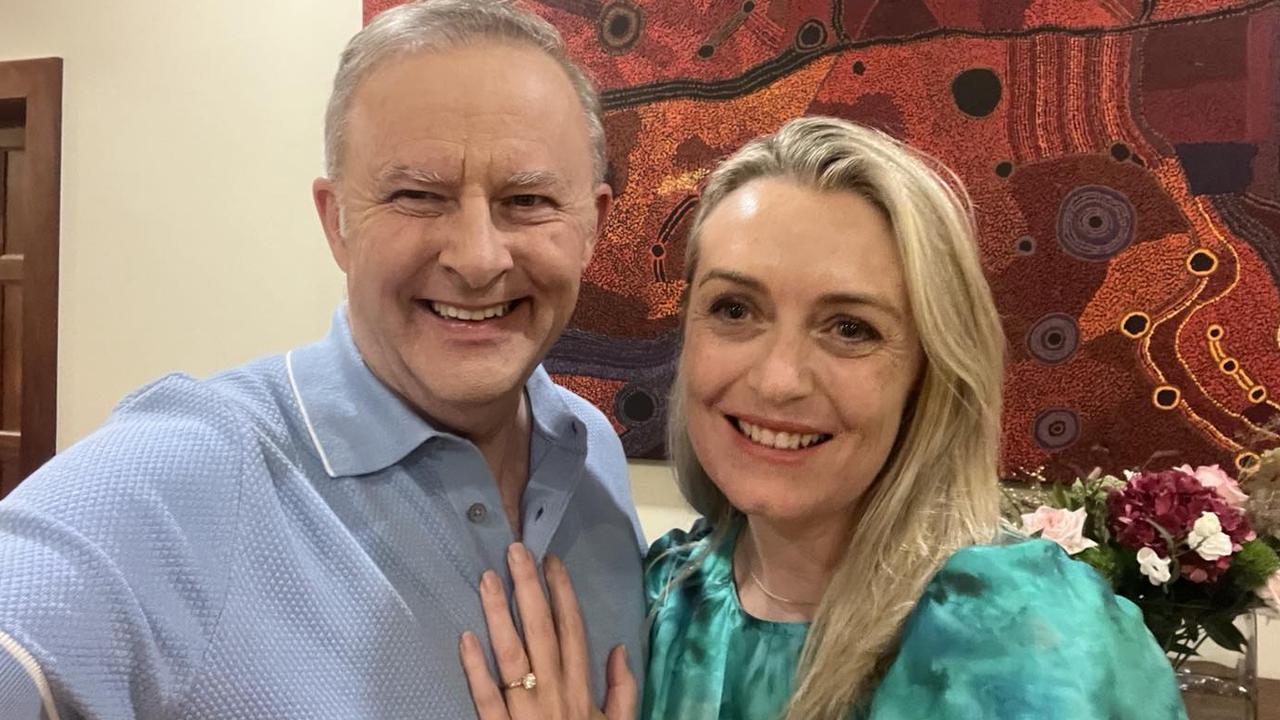
“Any chance you’ll give me the date for a front-page story?’’ I ask.
“None,’’ he says.
The wedding, from a purely (and cynical) political perspective, is pure electoral gold, and it must have occurred to him that a fairytale ceremony at year’s end would deliver him a political honeymoon that might get him over the line in an early 2025 election.
But it may end up being a largely private affair, and possibly even after the election. Albanese doesn’t even know what he’ll wear and appears to see the event as largely peripheral to the relationship itself, and the fact that he seems to have fitted in well with the in-laws.
The Haydons reside around the NSW Central Coast, which he loves in the manner he loves Bargara near Bundaberg, which he thinks shares the same sort of “vibe’’ and where he has holidayed in recent years.
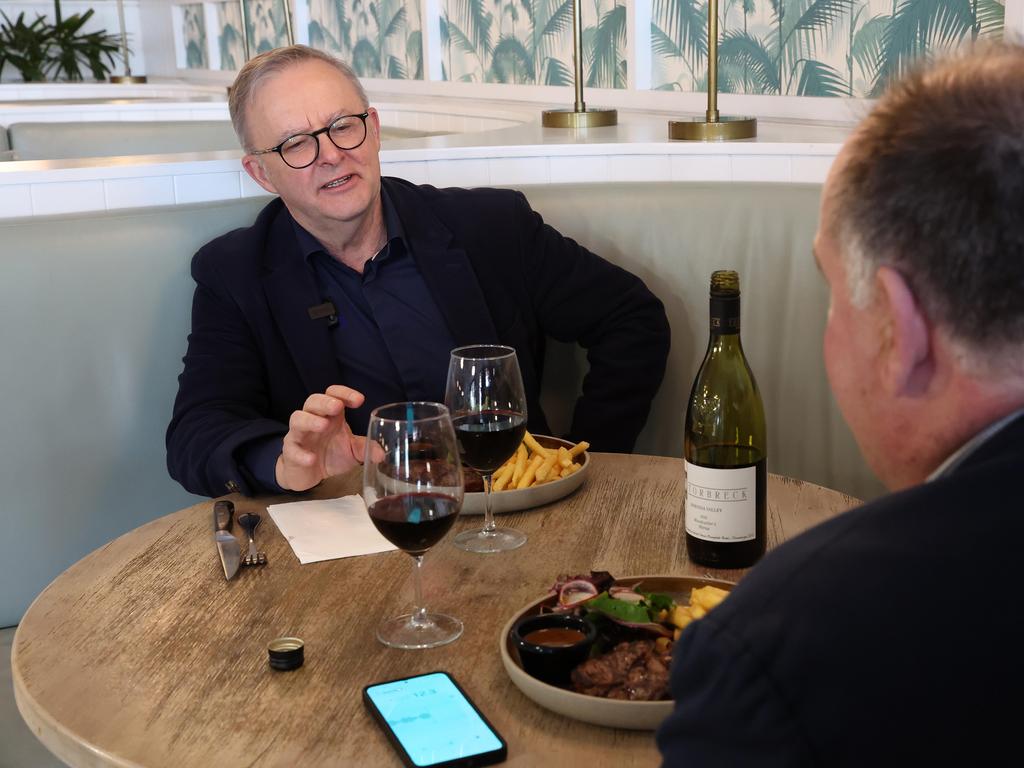
It’s all light years removed from his early years in Camperdown which isn’t far from the location of that once famous Australian novel The Harp in the South by Ruth Park, portraying the gruelling poverty of Sydney’s Irish Catholics in Surry Hills.
Albanese, born just 15 years after the book was published, acknowledges the culture portrayed was reflected in his own early years where rugby league, Sunday mass and the Australian Labor Party served as the three pillars of Irish-Australian culture.
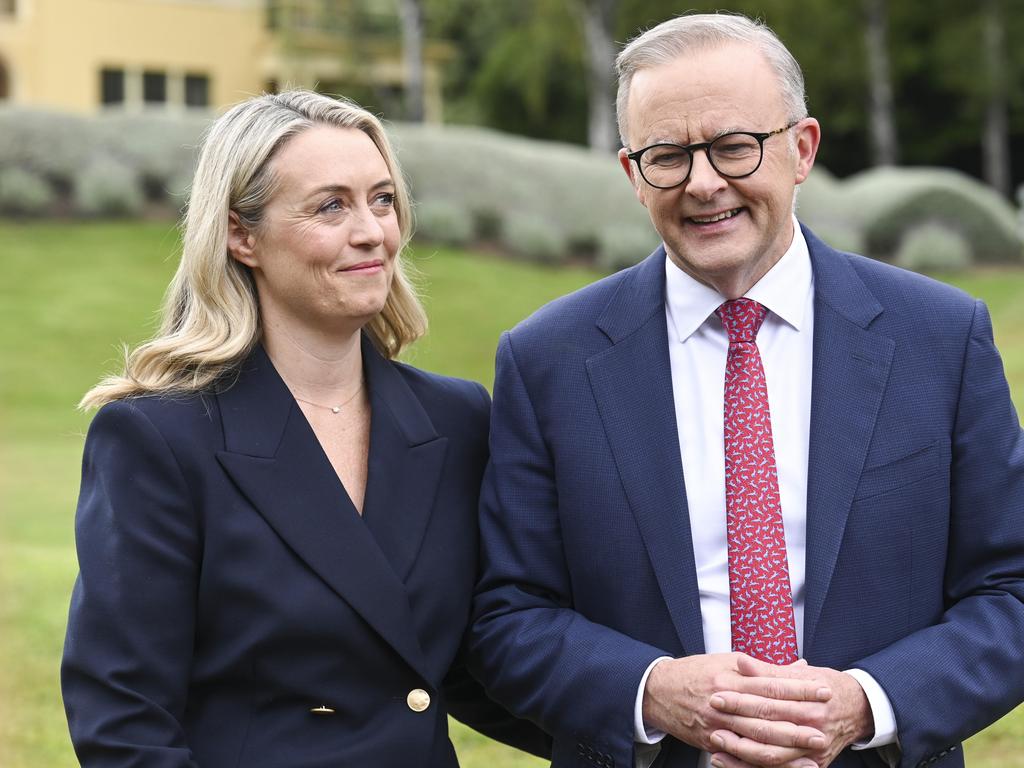
When he was a baby his mother, Maryanne Ellery, worked as a cleaner at night and cared for him during the day until crippling rheumatoid arthritis put her on a disability pension and that, along with his grandmother’s pension, was what the family subsisted on.
Yet the largely Catholic community was tight. He could walk into a neighbouring house and get a meal as a 12-year-old. When his mum scraped up the money to get him to a footy grand final as an eight-year-old and he realised, crestfallen, that he was too short to see the game, the men, many of them well lubricated by VB, pulled him up from the crowd and put him on their shoulders, sometimes throwing him up in the air and catching him in a fit of exuberance if things were going well on the paddock.
“My mum told me later she couldn’t watch the games because she kept watching me, hoping I wouldn’t hit the ground,” he says. “But the thing is, everyone sort of knew each other and trusted each other.’’
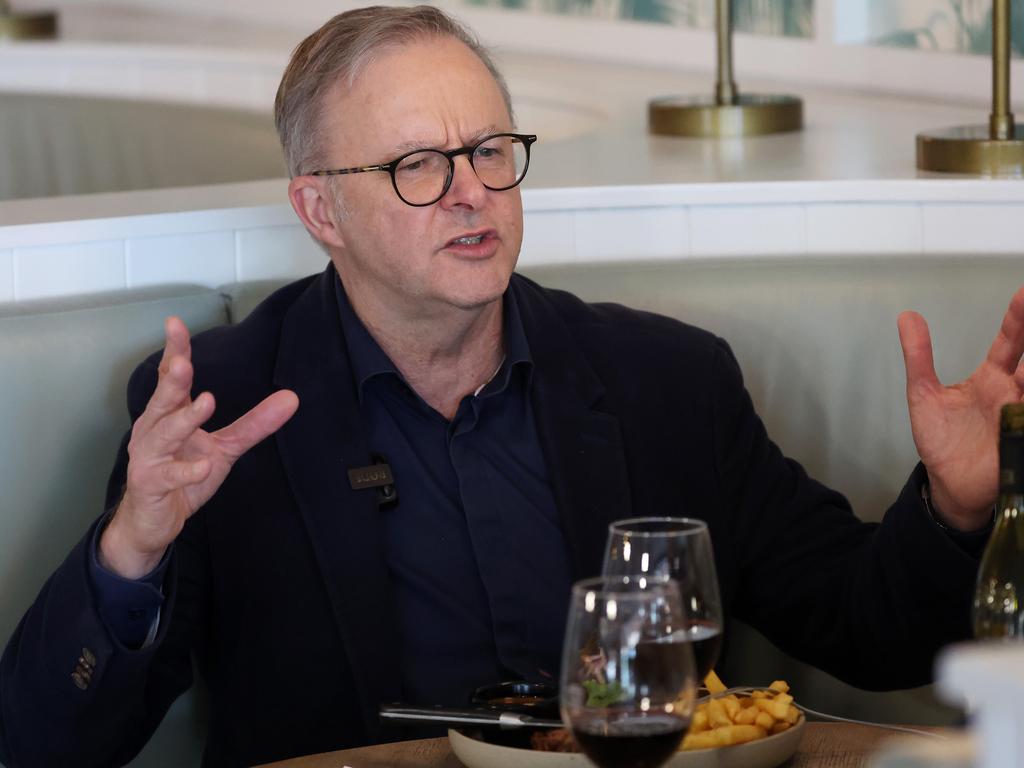
Sydney Archbishop Cardinal Norman Gillroy had firmly held the line with the ALP after the split of 1955 and NSW Catholics remained largely faithful to Labor, unlike in states such as Queensland, where the emerging Democratic Labor Party was tearing apart the ALP.
Albanese was no “cultural Catholic’’ but a full-bottle “Mick’’ or “Tyke’’ – the nicknames then derisively applied to Catholics but co-opted by the Irish themselves who readily used the names on each other.
For Albanese, it was St Joseph’s Convent and St Mary’s Cathedral College, Christian Brother teachers, confirmation, communion, altar boy service and a lingering affection for a church that was so powerfully entwined with not only the life of his beloved mother, but the ALP itself, embedding in it a social consciousness which Albanese still believes resides in the party’s soul.
A recent media report that he occasionally attends Sunday mass is accurate, he says, but not something he wants to broadcast, because he sees a person’s metaphysical beliefs as a personal matter.
But he clearly has a sense of gratitude for the church.
He remembers one Christian Brother who made him captain of the footy team when Albanese knew he was an adequate player, but no star.
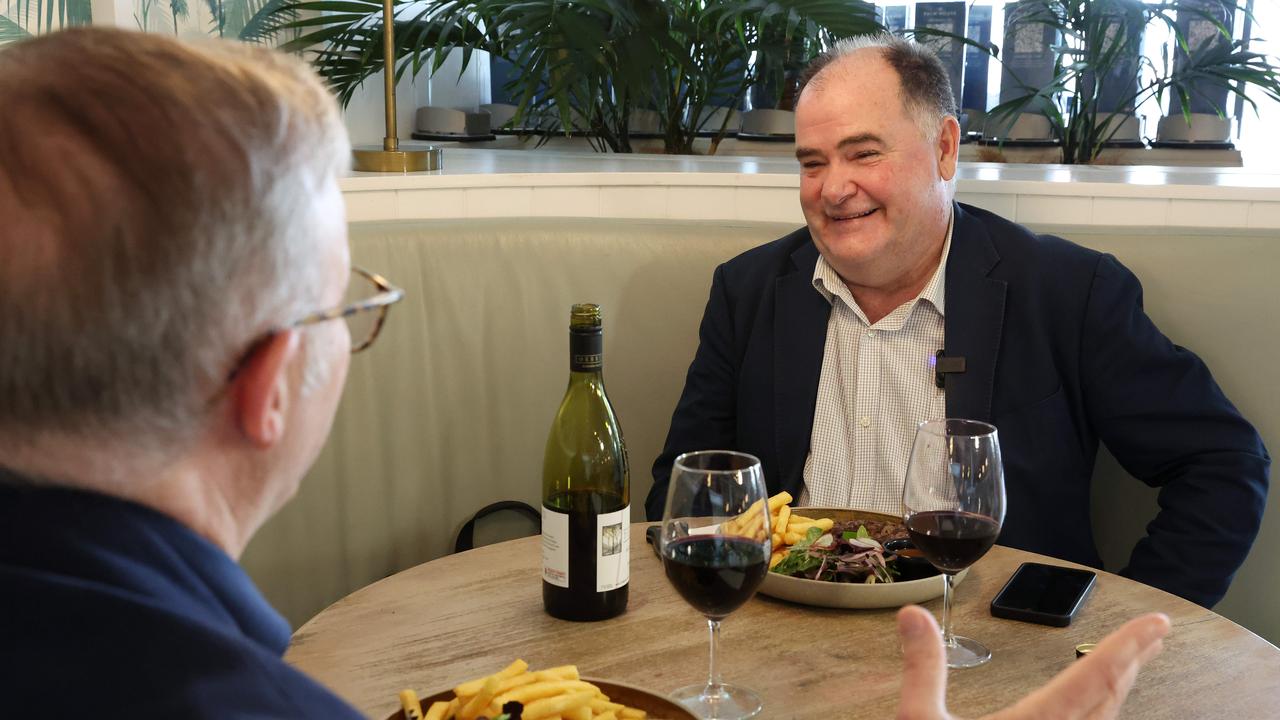
“I could kick a goal, that was one of those things I could practice alone without brothers and sisters, and I remember I became pretty good at goalkicking but I was really just an average player.’’
Yet the leadership position required that he give a speech about the state of play after weekend matches, and he now suspects the Christian Brother gave him the job simply because he wanted the boy to develop confidence in public speaking – a talent essential in politics.
The lunch is at News Corp Australia’s Bush Summit in Townsville, an event Albanese has attended since 2019, when he turned up to the inaugural event in Dubbo.
Before lunch Albanese spies senior News Corp executive and Australian Wine Club cellar director John Lehmann, and insists Lehmann examine the wine list and select a good red to go with the steaks, possibly because Lehmann is a renowned wine expert, and possibly because Lehmann lives in Albanese’s electorate and the PM is seeking a vote by ingratiating himself with a constituent.
In any case, it’s a good move, because the 2023 Torbreck Woodcutter’s Shiraz from the Barossa Valley, even for a wine-illiterate such as myself, goes well with the two medium rib fillets and the pepper sauce which Albanese always orders with his steak.
The Quarterdeck is part of the now sprawling precinct which began with the Townsville Casino in 1986. It’s a beautiful location, with families splashing in the pool outside. It’s also an enjoyable end to the working week for Albanese, who is headed home in the afternoon and, while I veer toward an eight, the PM gives the steak “10 out of 10”.


Add your comment to this story
To join the conversation, please log in. Don't have an account? Register
Join the conversation, you are commenting as Logout
Dog act: ABC hammers Bluey, bans favourite episode
The Hammerbarn episode from season 2 of beloved cartoon show Bluey has been axed from ABC’s iview because of a partnership the show has with hardware giant Bunnings, infuriating Aussies.
Inside US Navy’s largest missile sub during Brisbane visit
USS Ohio's sailors are breathing fresh air in Brisbane after joining the Talisman Sabre military exercise, as a rare tour reveals life inside America's most heavily-armed submarine. PICTURES